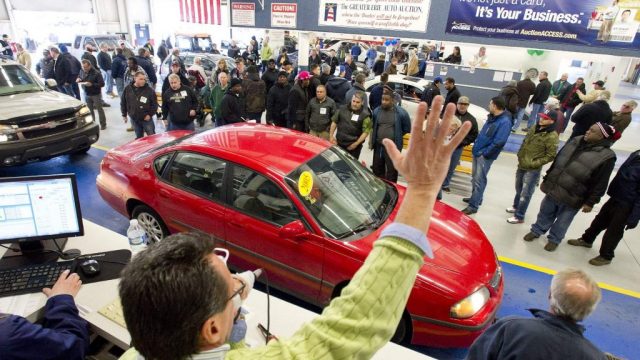
The resilience and adaptability of wholesale auto auctions played a crucial role in bolstering used retail sales during these difficult six months and will remain critically important to the auto industry’s continued recovery.
The primary concerns for the auto industry heading into 2020 were affordability, credit and inventory, with used car dealers expecting their best spring since 2014. But, by March, hopes for a record year quickly shifted to concerns about survival as the industry and the economy experienced the most dramatic and sudden declines on record.
In the second quarter, used retail sales started to improve, benefitting from the pent-up demand created during the two-month lockdown, a build-up in wholesale supply, and the stimulus funds provided to businesses and consumers. By June, most markets were seeing year-over-year growth in vehicle sales. However, as we entered the back half of the year, conditions became less favorable for dealers as COVID-19 cases started increasing again, new restrictions were added, and consumer fear grew.
And yet, in good times and bad, wholesale auto auctions play a vital role for both the auto industry and its car-buying consumers. Auctions provide market liquidity by allowing consignors to quickly convert cars into cash and offer the ability to move large volumes of vehicles without depressing prices. Auctions also deliver credible pricing that comes from an objective view of what vehicles are worth in the marketplace and enable sellers to maximize their return on investment when using a reconditioning facility that many auctions provide.
For consumers, the indirect benefits of auto auctions range from ensuring dealerships have large selections of used vehicles to meet their needs and preferences to determining true vehicle values through wholesale marketplaces. Auctions also instill trust with strict standards and protocols determined by the National Auto Auction Association.
What’s ahead: Digital paves the way
The wholesale vehicle marketplace is now more digital than ever with 52% of sales already going to digital buyers before the pandemic hit. And year to date through July, that percentage jumped to an overwhelming 78%.
It’s become increasingly clear that the auction business model is changing. These numbers and others suggest that the digital marketplace is growing stronger. Due to the circumstances brought on by the pandemic, many of us, have developed new behaviors. It is said that it takes roughly 60 days for a behavior to become a habit. Many clients have formed new habits such as conducting more business digitally. But, that’s not to say that physical auctions are going away anytime soon.
After the winning bid: RunBuggy
The global pandemic also accelerated some aspects of the mobility evolution that will forever change the future of auto shipping to and from auctions, a great example is Runbuggy which is an open car transportation marketplace that gives you access to a nationwide network of car transporters through an easy to use app. It allows customers to quickly see where their vehicles are while in-transport and bridges that gap between the digital auction and the transporter to seamlessly handle the delivery.
From instant quotes to digital documentation, we’ve pack a lot into an easy to use app.
If you’re interested in learning more about how RunBuggy works, lets schedule a test drive!
